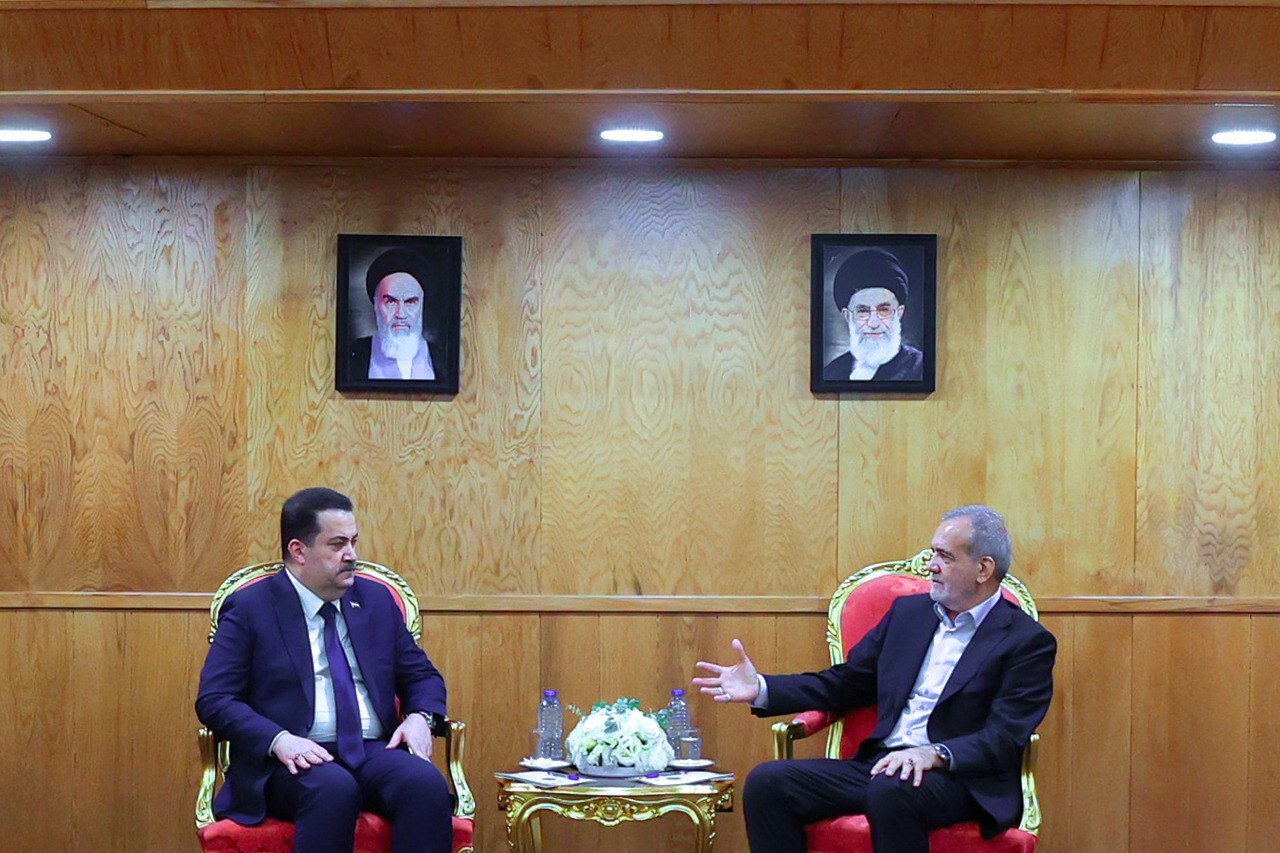Why Iraq?
President Pezeshkian heads to Baghdad on Wednesday for his first foreign visit

TEHRAN – Iranian President Masoud Pezeshkian is set to arrive in Iraq on Wednesday, after announcing last month that he is planning to make Iraq his first foreign destination as the president.
According to remarks by Iran’s Ambassador to Baghdad, Pezeshkian's visit to Iraq follows an invitation from Prime Minister Mohammed Shia' Al-Sudani. The invitation is believed to have been extended during Al-Sudani's visit to Tehran in July when he attended the president’s inauguration ceremony in parliament.
Since he began to run for president, Pezeshkian has aimed to show a friendly face to the world. He has said multiple times that he plans to advance relations with both the West and the East, and during his first televised address to the Iranian people after assuming office, he highlighted the significant advantages that expanded ties with other countries can bring to Iran.
Based on the path Pezeshkian has been trying to carve for Iran’s foreign policy, it is believed that his choice of Iraq for his first foreign visit as the president holds immense weight.
“When President Pezeshkian took office, some were concerned that his administration would not prioritize regional issues, and mainly pour its efforts into mending ties with the West,” said Mohaddeseh Rezayi, an expert on Iraq. “This visit shows that the new government is just as committed to strengthening Iran’s relationship with both the people and the government of Iraq, as the last one was.”
Pezeshkian's decision to begin his four-year term of foreign travel in West Asia in fact, marks a break from tradition. Conservative Ebrahim Raisi and fellow reformist Mohammad Khatami both initially visited Central Asia, and most other former Iranian presidents made their first foreign appearances with speeches at the UN headquarters in New York.
The state of Iran-Iraq ties
Iran and Iraq share deep religious, cultural, and historical ties. Each year, millions of Iranians travel to neighboring Iraq to take part in the annual Arbaeen pilgrimage that commemorates the 40th day after the martyrdom of the third Shia Imam. They are mainly hosted by the locals, and forge deep connections with Iraqis along the way.
Iran’s strong influence in Iraq’s political, military, and security circles is no secret either. Many Iraqi politicians active in various branches of the government have lived in Iran for several years. A substantial part of the Iraqi security and military body also aligns ideologically with Iran and the rest of the Axis of Resistance.
But the deep affinities and links between the two countries, don't mean there are no factors crimping their relations. Both have bones to pick with each other especially Iran, which is concerned about Iraq’s lack of resistance against American demands to pressure Tehran.
“Even though Al-Sudani was believed to have close ties with Iran when he first came to power, he has been more aligned with the U.S. during his term in office,” West Asia analyst Alireza Majidi told the Tehran Times. “Baghdad has been complying with all American wishes to make sure its sanctions against Iran take full effect. So, even though no one can deny the close ties between Iran and Iraq, the current level of cooperation between the two countries is not satisfactory. Some Iraqi politicians even refer to Ali Mohsen Al-Alaq, the head of Iraq’s Central Bank, as ‘America’s police’.”
The biggest obstacle to the advancement of ties between Iran and Iraq is the U.S., the expert added. “Washington acts to harm Iran in various military, security, and economic fields. It even assassinated a top Iranian general who fought for years in Iraq to help eliminate terrorists.”
President Pezeshkian should use his meetings with Iraqi officials to address these concerns while also highlighting areas of potential cooperation, Majidi suggested.
Leave a Comment